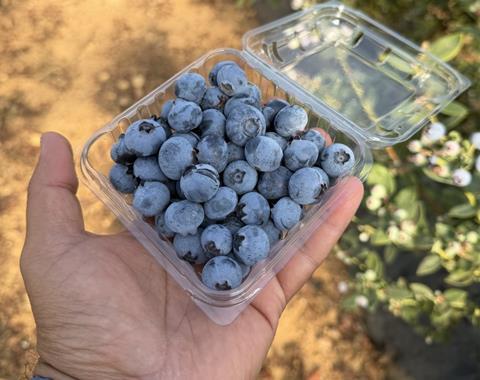New blueberry variety could be the earliest-producing blueberry in these countries, says GPG

Global Plant Genetics (GPG) says its early season low-chill blueberry variety, Tropical Blue, is drawing significant attention this season thanks to its exceptionally early performance in Spain and Morocco.
“Growers in both regions are reporting harvest dates that are noticeably ahead of schedule – so early, in fact, that Tropical Blue may now be positioned as the earliest-producing blueberry variety currently grown in these key Mediterranean supply origins,” said GPG director Jamie Petchell.
“This earliness is proving strategically important. With markets hungry for high-quality blueberries at the start of the Northern Hemisphere winter, Tropical Blue is allowing growers to capture strong early-season pricing while offering retailers a reliable supply of premium fruit at a time of limited availability.”
According to GPG, early harvesting is not the only attribute that attracting growers to the new variety. “Berries are consistently large, firm, and highly uniform, with a naturally sweet flavour profile that holds well throughout the harvest window,” the company said. “These characteristics make the variety well suited for both domestic programmes and long-distance export markets where firmness and shelf life are essential.”
Petchell highlighted yield potential as another defining strength. At just 2.5 years of age, commercial plantings in Spain are forecast to deliver approximately 6kg of Class 1 fruit per plant this season – a notable result for a young plant and a clear indicator of its long-term commercial viability, he said. As these plantings mature, growers anticipate even stronger performance, further enhancing the variety’s return on investment.
“With its combination of ultra-early harvest timing, high fruit quality and strong yield potential, Tropical Blue is emerging as a standout option for producers seeking to secure an early foothold in the global blueberry market. For many growers, it represents not only an agronomic advantage but a meaningful commercial opportunity,” Petchell said.



